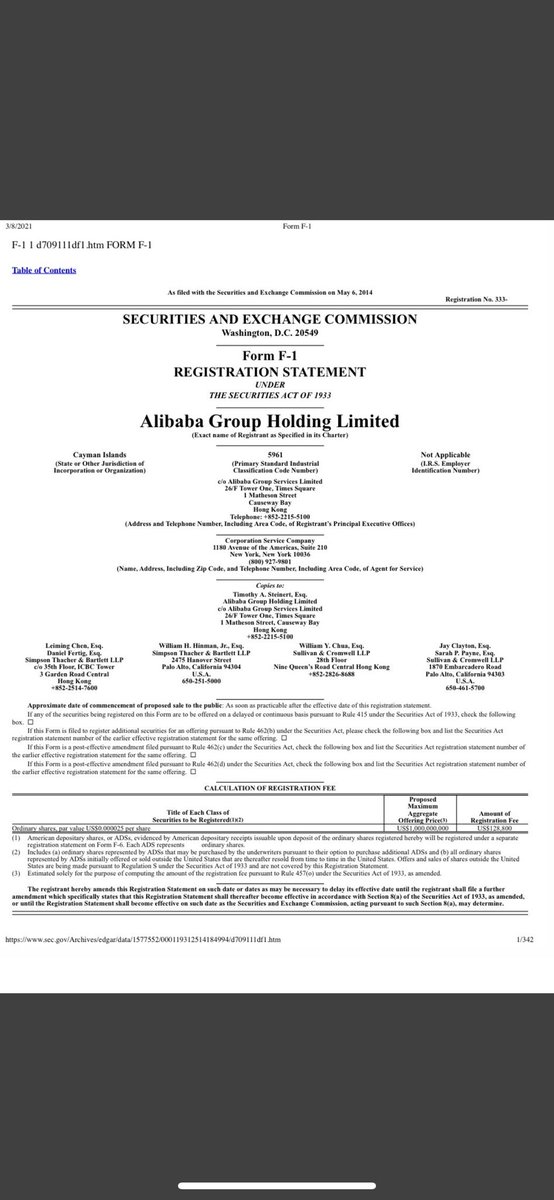
AND WHAT IS THE LAW:
“Cryptocurrencies (sometimes called tokens or digital assets) are a lawful means of storing or transferring value and may fluctuate in value as any commodity would. In the abstract, an investment of money in a cryptocurrency utilized by members of a
“Cryptocurrencies (sometimes called tokens or digital assets) are a lawful means of storing or transferring value and may fluctuate in value as any commodity would. In the abstract, an investment of money in a cryptocurrency utilized by members of a
https://twitter.com/johnedeaton1/status/1402327653525360643
decentralized community connected via blockchain technology, which itself is administered by this community of users rather than by a common enterprise, is not likely to be deemed a security under the familiar test laid out in S.E.C. v. W.J. Howey Co.”
-Judge Castel (Telegram-1)
-Judge Castel (Telegram-1)
Judge Castel also made clear:
“the security in this case is not simply the Gram, which is little more than alphanumeric cryptographic sequence. Howey refers to an investment contract, i.e. a security, as ‘a contract, transaction or scheme’,”
- J. Castel (quoting Howey)
“the security in this case is not simply the Gram, which is little more than alphanumeric cryptographic sequence. Howey refers to an investment contract, i.e. a security, as ‘a contract, transaction or scheme’,”
- J. Castel (quoting Howey)
And if there was any doubt about the token itself, in Telegram-2 Judge Castel clearly states:
“the ‘security’ was neither the Gram Purchase Agreement nor the Gram but the entire scheme”
In Telegram there were purchase agreements between the investors and the company Telegram.
“the ‘security’ was neither the Gram Purchase Agreement nor the Gram but the entire scheme”
In Telegram there were purchase agreements between the investors and the company Telegram.
J. Castel basically said the oranges 🍊 in Howey weren’t securities and neither are digital tokens (whether #Grams or #XRP or whatever).
In Telegram, like Howey, there were actual purchase contacts involved and the Courts said even the contracts themselves aren’t the Securities.
In Telegram, like Howey, there were actual purchase contacts involved and the Courts said even the contracts themselves aren’t the Securities.
Even though people have called for a Ripple Test or a more modern test than Howey, when applied to digital assets, make no mistake about it - under current law (ie Howey and Telegram) - #XRPHolders win.
All we need the Court to do is follow existing legal precedent.
All we need the Court to do is follow existing legal precedent.
• • •
Missing some Tweet in this thread? You can try to
force a refresh




